Interview by Runner’s Tribe
Steve Magness doesn’t mind being referred to as a bit of a science nerd. When it comes to the science of running there are very few around with knowledge to match.
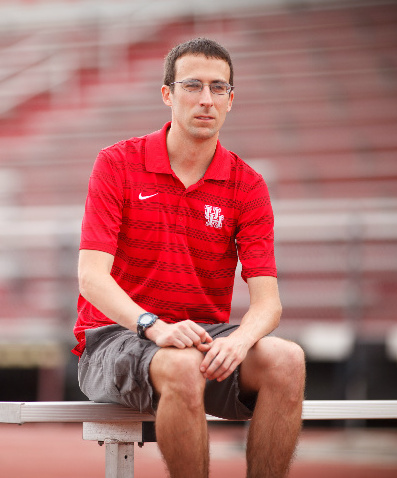
Magness is the cross country and track coach at the university of Houston. Prior to that, he was Alberto Salazar’s assistant coach at the Nike Oregon Project. He has coached numerous Olympians and leading American distance runners.
A 4:01 miler in high school, Magness is the author of the top-selling book ‘The Science of Running’. There is a second book on the way too, set to launch in June 2017 titled ‘Peak Performance’.
RT: Steve, your work with ‘The Science of Running’ is awesome. Let’s start with a run-down on where you are at with your professional career?
SM: I’m a man of many hats at the moment. I coach about a dozen professional runners, ranging from 800m specialist like Mark English to marathoners like Neely Spence-Gracey. My day job is coaching at the University of Houston, while my ever expanding side-gig is in writing. I just finished up with my next book, Peak Performance, which will be out in June.
RT: For those that have not heard of you. Can you provide a brief (if that’s even possible) overview of your coaching philosophy?
SM: If I had to keep it simple, my coaching philosophy could be summarized by three statements. First, we coach people, not robots. Secondly, coach the individual, not the system. And finally, everything is always there, the emphasis just changes.
What do those mean? We need to take a holistic view of the athlete. Consider not only their physiology, as most coaches do, but also their mechanics and psychology. Understand what they bring to the table and why they are running. Essentially, we’re trying to establish a framework for how each athlete sees the world and how that impacts how we coach them.
Secondly, I’m not a big believer in systems style coaching. It’s not that Lydiard or Daniels or Cerutty or Bowerman invented the one and only training system that works. Instead, we need to take the principles of adaptation, see what we are working with individually, and build our own training model around that athlete. Or as I like to say, the event demands and the athlete’s characteristics determine the training, not the other way around.
And finally, from sprinting to slow jogging, every training intensity should be utilized. What changes over the course of a year or season is the degree in which we emphasize them.
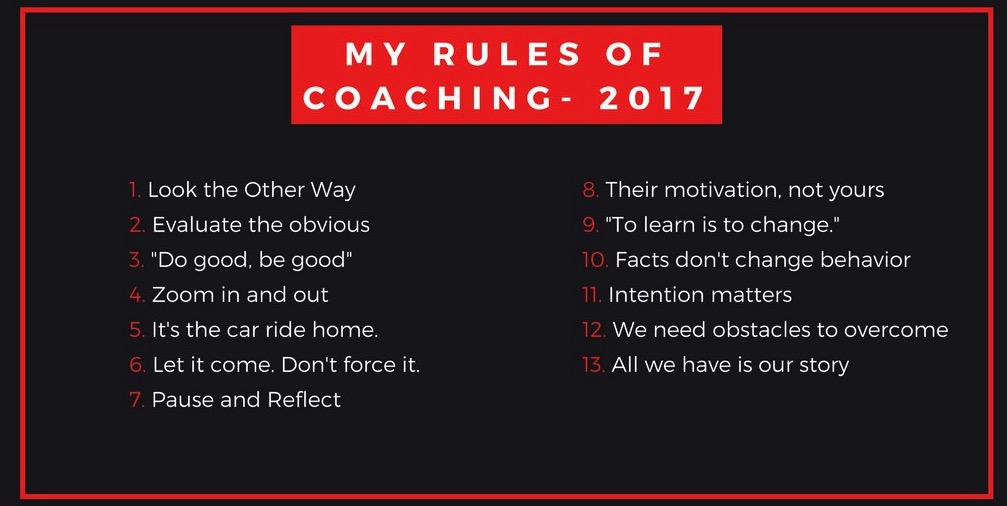
RT: They’ve called you the ‘Mad Scientist of Running’. This deep understanding of physiology – do you think too many coaches out there lack this and just rely on their old-school philosophies?
SM: I actually think what we are missing are coaches who understand both sides. I’m known as a science based coach, but I spend more time trying to understand the other side of the coin, the historical or artistic part of the sport. It shouldn’t be a question of either you are science or old-school; both are wrong. It should be, let’s learn as much about all sides of sport as possible, so that we have a foundation of knowledge off which we can build. It’s through connection of ideas that real innovation and breakthrough occurs. You only get that connection if you have a deep understanding of the science, art, and history of the sport.
RT: To use an example to pick your brain. Peter Snell is famous for doing his 22 mile loop in New Zealand’s Waitekere range, he would do it a few times per week on occasions. It is fair to say there are not too many top 800m runners who clock such long runs these days. From Snell’s book ‘No Bugles No Drums’
“The main requirement of the top half-miler is endurance”
Now obviously modern training has progressed and speed is usually maintained all year round to some degree, but are you of the opinion that today’s 800m runners as a rule lack true Snell type endurance?
SM: Endurance is relative. The endurance an 800m man needs is dependent on what he brings to the table. I look at the speed vs. endurance conundrum like a seesaw. There’s an ideal balance point for each individual, and we are trying to continually improve each component, while keeping the seesaw balanced. With today’s 800m runners, I think you have to ask, is endurance the limiting factor to getting to the next level? If it is, then you need to work on it!
Another point is, there are many ways to build endurance. What most people don’t appreciate is that Lydiard, with his long runs, and a coach like Igloi, with his countless short rest repeats on the track, are accomplishing the same goal with drastically different approaches. It’s not HOW you get there that matters, it’s just that you get there. And the brilliance of Igloi or Lydiard is that they figured out how to get there with the athlete’s they had.
RT: We recently interviewed Olympic 1500m finalist Charlie Grice. Charlie sleeps in an altitude tent and stated
“I don’t think that you can be competitive in middle and long distance running without using altitude training”.
What are your thoughts on simulated altitude training; tents, IHT at rest, IHT at exercise vs. travelling to altitude?
SM: Great question. First, let’s separate artificial from natural altitude. Simulate altitude, like living in a tent, work only if you spend a lot of time in the tent. You get a haemoglobin mass increase if you spend 12+ hours a day in a tent. That’s a lot of time. So while you might get an increase in Red Blood Cells (RBC) from it, you might also jack up your stress levels from sitting in a tent for hours on end, not to mention sleep disturbance. So, while it can work, I’m not a huge fan for most.
With regards to actual altitude, we should stop seeing it as some sort of magic, and start seeing it as another way to stress the body to adapt. It’s a stimulus to adapt, just like increasing mileage, or maybe exercising in the heat. Where most people screw up is they fail to take this into account, and they end up not adapting because they overstress their bodies and don’t allow it to adapt to the new load.
So my preference has always been, go to altitude for a stint to get a boost in performance.
I also think there’s a large psychological component to it. If you have convinced yourself that you need altitude, then by god, you better go to altitude.
RT: It’s not uncommon to see athletes who seem to be non-responders. Take for example, an 800m runner with true 400m type speed (say 45). His PR for 800m is 1:47. His coach argues that to get to the next level he needs to improve his endurance, but during winter he just doesn’t seem to make any progress with the longer type workouts, he stagnates and loses motivation? Thoughts on how athletes like this should be coached?
SM: Change what you are doing. I’m not a big believer in the non-responder phenomenon. If they aren’t responding, then either the workouts are too much or too little, or in the wrong direction. If, like in this example, your 800m man’s endurance isn’t being improved, then try a different approach. If you’ve been doing traditional 4-5 mile tempo work, try 400m repeats with 30 seconds rest at 5k-10k speeds instead. It’s pretty simple; if they aren’t responding, change something.
RT: “My athletes are awesome because they are like my own little guinea pigs” – This quote taken from Outside Online from January 2015. Are you still trialling new coaching ideas with your current athletes?
SM: You should always be evolving as a coach. My rule of thumb is that if the racing is going well, that means at least 51% of what I’ve been doing has been working. What it doesn’t mean, is that everything I’ve been giving him is working. So we’re constantly testing and tweaking things to see if there is a better way to do it. Now, the important point is, know what to change and what to leave alone.
So we end up doing a lot of experimenting on the fringes of training, meaning on how we do workouts or the psychological part of it, versus the bread and butter work that we know we have to do.
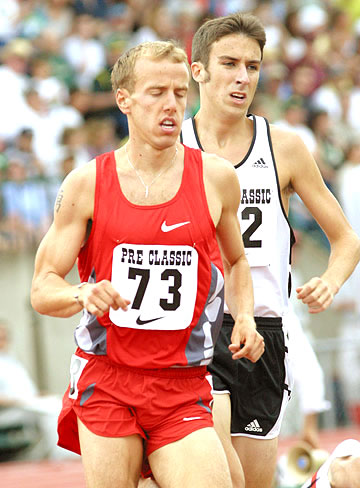
RT: I’m interested in your out of the box thinking in regards to tapering for big races. The day prior to a major race, traditionally athletes would go for a light jog or do some easy run-throughs. Let’s use the example of an elite 1500m runner with a major race on the Saturday. What would the week leading into this race look like?
SM: I hate to sound like I’m beating a dead horse, but it’s all individual. What we’re looking for is to get an athlete to feel good, with some pop in their muscles, on race day. How to do that, differs greatly. So an explosive middle distance runner, might need to do some pure sprints or accels in the days leading up to it, a distance orientated one might need to do some cruise intervals, and so forth.
When researching for my book Peak Performance, I spoke with a brilliant field hockey coach named Dave Hamilton. He’d done all sorts of research on priming athletes for competition. And what it came down to is their last workout needed to be something they liked. Do what they like. Was his suggestion.
RT: Post workout/race recovery. There is so much commercialism presented to us all; recovery bars, powders, protein drinks. Do you subscribe to any of this or is water and a very well balanced diet suffice?
SM: Believe it or not, I think the most important part of recovery is actually social interaction. Going on a cool down with your friends, having a debrief post race or workout, and just goofing around. Socializing causes a hormonal shift out of the stressed workout/race zone and into a recover and repair phase.
Beyond that, I think keep it simple. People obsess over the wrong things in our sport. How many times have you seen someone lose focus or have a subpar workout and then they rush off to get their nutrition shake and their foam rolling in? The last 2% are the last 2% for a reason. I’m not saying it doesn’t matter, but what I am saying is that if you nail the basics, eat real food, drink lots of water, and get something good in after you expended a lot of energy (i.e. workout) then you’re good to go.
RT: You have written a lot about the psychology of high performance. When you meet a young athlete with huge physical talent but a weak mental constitution. Have you successfully been able to turn athletes like this around and get them to Olympic level?
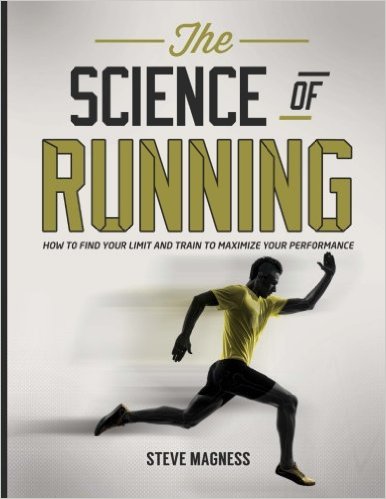 SM: Here’s the secret. We’ve all got psychological battle wounds and insecurities. We’re all a mess. Or as philosopher Alain de Botton likes to say when discussing relationships, ‘we’re all crazy, just admit it up front.’ I’ve known and worked with plenty of Olympic level talents who were “weak mentally,” and even the “strong” ones had pain points that made them as vulnerable and “weak” as any other runner.
SM: Here’s the secret. We’ve all got psychological battle wounds and insecurities. We’re all a mess. Or as philosopher Alain de Botton likes to say when discussing relationships, ‘we’re all crazy, just admit it up front.’ I’ve known and worked with plenty of Olympic level talents who were “weak mentally,” and even the “strong” ones had pain points that made them as vulnerable and “weak” as any other runner.
I’m not saying that to downplay the psychological side, but instead to realize that the difference between those who appear tough and those who don’t is in their mindsets and the coping mechanisms they have developed. The psychologically strong have framed how they approach adversity and competition better. They’ve also spent the time in developing proactively how they respond to stress and anxiety.
We all can get better at it; the good ones just choose to work on it. There’s a big mental hang up on working on the psychological side of things and what I’ve tried to do is bring that wall down. It’s not about appearing tough, as often the ones who attempt to appear that way are actually what I call “fake tough.” Instead, it’s about accepting that what we do as runners is really really difficult. Now, we have to figure a way to deal with it.
I consider training as much mental as it is physical. When we are at practice, where your mind goes during a workout is where your mind will go during a race. So workouts are when we need to ingrain the right coping skills and how to make the right decisions.
In addition to workouts, I like pointing my athletes in uncertain or stressful situations and have them work on accepting the discomfort, not freaking out, and manoeuvring their way through it mentally. When it comes down to it, racing is all about not freaking out.
RT: Steve, awesome to have you on Runner’s Tribe.
Steve’s website- http://www.scienceofrunning.com/
Follow Steve on Twitter @stevemagness




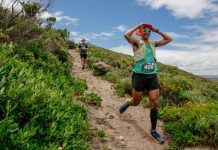
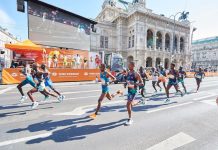
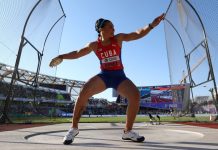
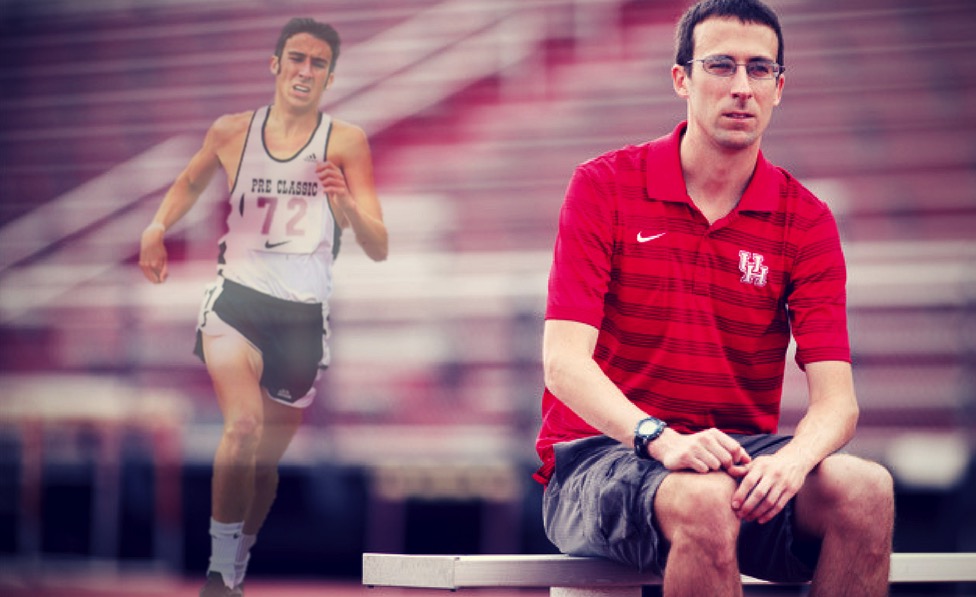







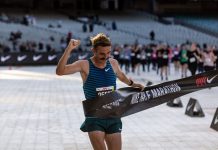
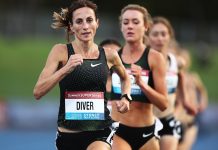













Comments are closed.